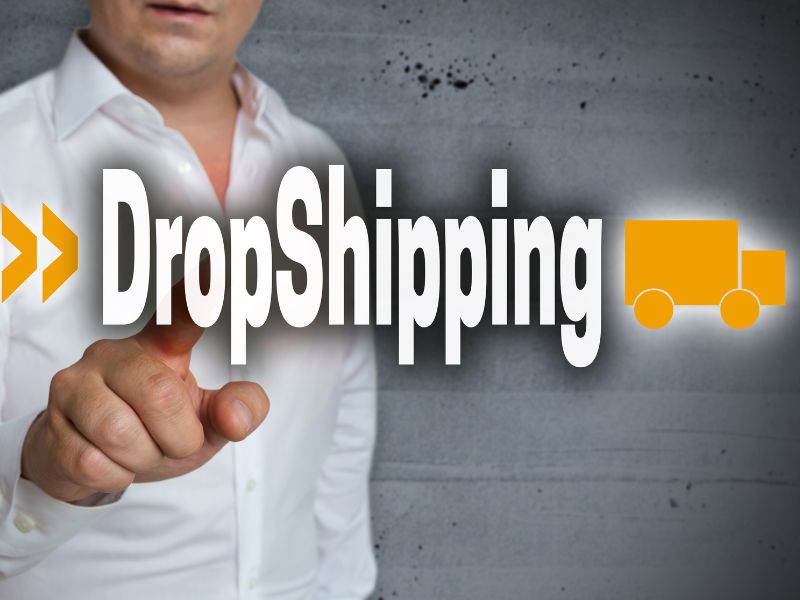Are you interested in starting your own online store?
There are plenty of different options to consider when it comes to sourcing products for your store, but understanding the difference between wholesalers, distributors, and dropshippers is essential before you make a commitment.
In this blog post, we will reveal the unique qualities of each option so that you can evaluate which one fits best with your business model.
Let’s tackle the three most popular ways to stock products for an eCommerce store: wholesale purchasing, distribution networks, and drop shipping.
Defining Wholesalers, Distributors, and Dropshippers
For those new to the world of commerce, there can be some confusion surrounding the roles of wholesalers, distributors, and dropshippers.
Put simply, wholesalers purchase goods in bulk directly from manufacturers or producers and then resell them to retailers in smaller quantities.
Distributors, on the other hand, purchase products from manufacturers and then sell them to retailers or wholesalers.
Finally, dropshippers act as intermediaries between retailers and manufacturers by facilitating the sale of products without ever handling the physical goods themselves.
Each plays a vital role in the supply chain and understanding the differences between them can ultimately lead to more profitable business decisions.
Advantages of Working with Wholesalers
Collaborating with wholesalers can provide several benefits for businesses.
Firstly, working with wholesalers allows companies to access a more extensive range of products and services that they can offer to their customers.
This is because wholesalers often have expertise in sourcing and distributing goods in bulk quantities, which can be challenging for individual businesses to achieve.
Thus, wholesalers can offer lower prices and better deals that can greatly benefit businesses and their customers.
Secondly, working with wholesalers reduces the need for companies to manage supply chain logistics, such as managing inventory and shipping products.
By outsourcing these tasks, businesses can save time and focus on their core competencies, such as marketing and sales.
Overall, partnering with wholesalers can help businesses expand their product range, improve their margins, and streamline their operations, making it an attractive option for companies looking to grow and scale.
Working with Distributors – Pros & Cons
Working with distributors can offer both benefits and drawbacks for businesses.
On the one hand, partnering with distributors can help companies reach new customers and expand their market share.
Distributors often have established relationships with retailers and can help businesses access new channels for selling their products.
Additionally, working with distributors can free up time and resources for a company, by allowing them to focus on their core competencies and leave distribution to the experts.
However, there are also potential downsides to working with distributors.
Businesses may have less control over the way their products are marketed and sold, and may have to share profits with the distributor.
Additionally, there is always the risk that a distributor may not be reliable or may not represent a company’s brand or products in the way that they intend.
Overall, working with distributors can be a smart strategic choice for many businesses, but careful consideration and planning is required to ensure that it is the right fit for a specific company’s needs and goals.
Benefits of Dropshipping

Dropshipping is rapidly gaining popularity among entrepreneurs who want to start an online business.
With this business model, you can sell products without the need to keep them in stock. It works by partnering with a supplier who will handle the packaging, shipping, and handling of the products.
As a result, you can save time, money, and effort by not having to deal with inventory management and shipping logistics.
Moreover, dropshipping allows you to test multiple products without investing heavily in inventory, making it an ideal option for those who are starting with a limited budget.
With its low startup costs, flexible location, and scalability, dropshipping is a smart way for entrepreneurs to enter the e-commerce industry and potentially earn significant profits.
Common Mistakes to Avoid When Working With Each Type of Supplier
In the business world, suppliers are a crucial part of ensuring your operations run smoothly and efficiently.
However, working with them can be a tricky task, especially when each supplier has different needs and requirements. One of the most significant mistakes you can make is assuming that every supplier operates in the same way.
Each supplier has its unique methods, regulations, and needs, and it’s essential to understand these differences.
Furthermore, not providing clarity on expectations from the beginning can lead to misunderstandings and conflict down the line.
By taking the time to understand each supplier’s specific requirements and communicating your needs clearly, you can help establish a relationship built on mutual trust and respect.
Avoid these common mistakes, and you’ll be well on your way to successful supplier relationships.
Finding the Right Wholesaler, Distributor, or Dropshipper for Your Business
Starting up a business is an exciting venture, but it can also be overwhelming. One of the most important decisions you’ll make is finding the right wholesaler, distributor or dropshipper for your product.
With so many options available, this can be a daunting task. Not only do you want to find a supplier that offers competitive pricing, but you also want to ensure they provide quality products and excellent customer service.
Taking the time to research and compare various suppliers can save you time and money in the long run. It’s important to establish a strong relationship with your supplier and communicate your needs to ensure a successful partnership.
With the right supplier by your side, your business can thrive and grow.
Regardless of whether you opt to work with a wholesaler, distributor or dropshipper, always make sure to do your research beforehand.
Don’t be afraid to ask questions and gather as much information about a potential partner before making a commitment.
Identifying the right supplier takes time and effort but will pay off in the long run. Each process has its benefits and drawbacks and determining which type works best for your business largely depends on individual goals.
Working with the right suppliers can help increase sales, unlock extra services, provide competitive pricing, and contribute significantly to the growth of your business.
Before making any final decision it is always important to weigh all your options and consider the needs of both partners.
How Shipbear Can Help

As a dropshipping agent with an extensive network of manufacturers, logistics providers, and warehouses, Shipbear can be your one-stop solution for all your supply chain needs.
We help businesses manage their entire global supply chain process, from sourcing through to delivery.
This includes connecting you with the right suppliers, managing inventory levels, securing competitive prices, and shipping products directly to customers.
With our efficient international logistics network, we provide fast and reliable forwarding services, ensuring your goods are delivered on time and in perfect condition.
Our dedicated team of experts is available to help you every step of the way, giving you peace of mind that your supply chain management needs are taken care of.
So whether you’re looking for a reliable wholesaler, distributor, or dropshipper for your business, Shipbear can help make the process easier, faster, and more cost-effective.
Contact us today to learn more about our services and how we can help you grow your business.



